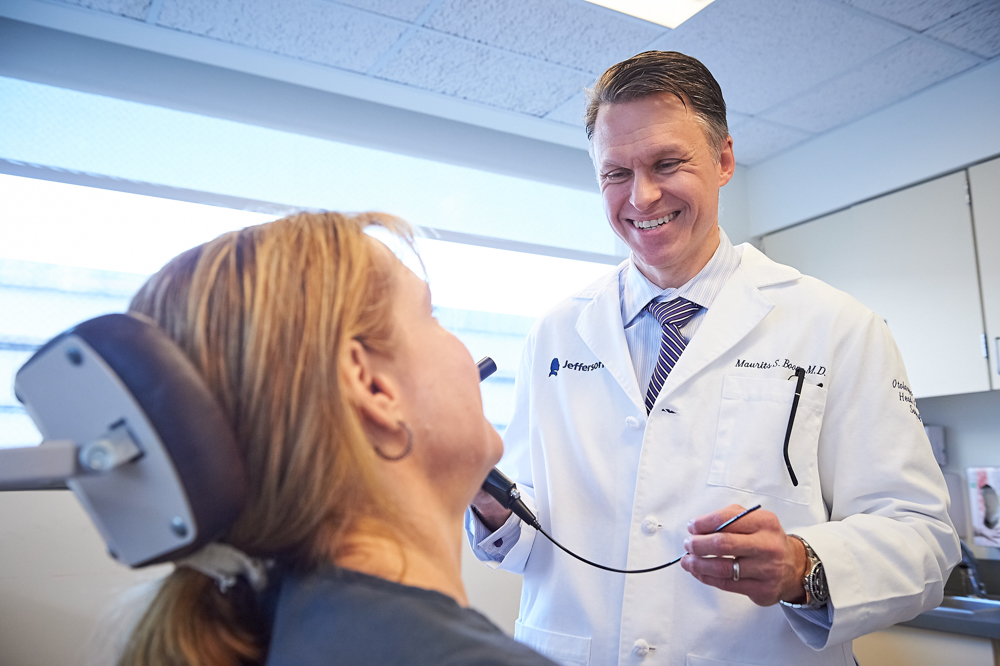Otolaryngology Explained: What Patients Should Know
Otolaryngology Explained: What Patients Should Know
Blog Article
Exploring the Area of Otolaryngology: What to Anticipate When You Get In Touch With an ENT
Otolaryngology, commonly described as ENT, encompasses the diagnosis and treatment of ear, throat, and nose conditions. For those experiencing related problems, getting in touch with an ENT expert can supply clarity and alleviation. Recognizing what to anticipate during such appointments is necessary for reliable communication and treatment. This review will outline crucial facets of the ENT experience, including usual factors for brows through and the processes involved in diagnosis and therapy.

Comprehending Otolaryngology: A Summary
Otolaryngology, commonly referred to as ENT (Ear, Nose, and Throat) medicine, is a specific branch of medicine that concentrates on the diagnosis and treatment of conditions affecting these crucial areas of the human body. This area encompasses a variety of conditions, consisting of those associated to hearing, balance, respiratory system function, and speech. Otolaryngologists are educated to take care of both medical and surgical therapies, making use of innovative methods and modern technologies. Their proficiency prolongs beyond traditional ailments, dealing with concerns such as allergic reactions, sinus infections, and hearing loss. In addition, they play a vital role in the management of head and neck cancers cells, offering thorough care tailored to private client demands. Generally, otolaryngology remains vital for keeping health and lifestyle in afflicted individuals.
Usual Reasons to See an ENT Specialist
Numerous people look for the proficiency of an ENT specialist for a range of reasons, showing the diverse nature of conditions that affect the throat, nose, and ear. Usual concerns consist of persistent sinusitis, which frequently leads to persistent nasal blockage and face discomfort. Allergic reactions and their linked symptoms, such as itching and sneezing, additionally motivate visits to these professionals (Otolaryngologist). Hearing loss, whether steady or unexpected, is another substantial factor for appointment. In enhancement, individuals might seek examination for throat disorders, consisting of relentless hoarseness or ingesting problems. Sleep apnea, characterized by interrupted breathing during sleep, is regularly addressed by ENT professionals. Each of these conditions highlights the relevance of specialized treatment in managing intricate ENT-related wellness concerns
Planning for Your ENT Visit
When preparing for an ENT visit, it is important to collect appropriate details and take into consideration any type of details concerns. People should put together an in-depth clinical history, including previous ear, nose, or throat concerns, surgeries, and existing medicines. Recording symptoms-- such as seriousness, frequency, and duration-- can provide valuable understandings for the ENT professional. Furthermore, people should prepare a checklist of inquiries they wish to ask, guaranteeing that all problems are addressed during the browse through. Bringing along any kind of relevant clinical records or test outcomes can further assist the ENT in comprehending the patient's condition. Lastly, clients need to confirm their consultation details, consisting of area, date, and time, to reduce any type of final confusion. Appropriate prep work can enhance the performance of the appointment and lead to better end results.
What to Anticipate Throughout the Consultation
As the consultation starts, the client can anticipate to take part in a thorough conversation with the ENT professional regarding their signs and symptoms and case history. The expert will certainly make inquiries about the period, regularity, and intensity of symptoms such as hearing loss, nasal congestion, or aching throat. In addition, the patient's previous clinical conditions, medicines, and any kind of pertinent household history will be examined, assisting the professional in forming a complete understanding of the person's health. The look at here now ENT might also ask about way of life aspects, such as direct exposure to irritants or irritants. This open dialogue develops a structure for the examination, making sure that the person's issues are resolved and setting the phase for any kind of essential analyses or suggestions for treatment.
Diagnostic Tests and Procedures in Otolaryngology
A series of diagnostic tests and procedures are essential in otolaryngology to properly assess and diagnose problems influencing the nose, throat, and ear. Usual examinations consist of audiometry, which determines hearing feature, and tympanometry, analyzing middle ear stress. Nasal endoscopy enables visualization of the nasal flows and sinuses, while laryngoscopy analyzes the throat and vocal cords. Imaging techniques, such as CT scans and MRIs, supply thorough views of head and neck structures. Allergic reaction testing may additionally be carried out to recognize triggers for sinus or respiratory system issues. These diagnostic devices enable ENT specialists to create a comprehensive understanding of clients' conditions, guaranteeing tailored and effective management plans. Proper medical diagnosis is essential for successful therapy results in otolaryngology.
Treatment Options Supplied by ENT Specialists
ENT professionals provide a selection of treatment choices customized to resolve certain conditions impacting the nose, ear, and throat. These treatments vary from traditional methods, such as medicine and lifestyle adjustments, to even more intrusive procedures. Allergic reactions may be managed with antihistamines or immunotherapy, while persistent sinus problems could call for nasal corticosteroids or sinus surgery. For hearing loss, ENT experts typically recommend hearing aids or surgical treatments like cochlear implants. In situations of throat problems, choices can include speech therapy or operations to remove blockages. Furthermore, they may supply advice for managing rest apnea, consisting of using CPAP tools or medical interventions. Generally, the goal is to enhance individuals' quality of life with individualized care and efficient therapy approaches.
When to Look For Follow-Up Treatment With an ENT
Acknowledging when to seek follow-up care with an ENT specialist is vital for handling ongoing symptoms or complications connected to throat, nose, and ear problems. Patients need to take into consideration arranging a follow-up consultation if symptoms linger despite initial treatment, such as persistent ear pain, nasal congestion, or throat pain. Changes in hearing, balance problems, or unusual nasal discharge might also call for additional analysis. Furthermore, if a patient experiences side impacts from prescribed medications or has actually undergone a surgery, follow-up care is crucial to keep track of healing and attend to any type of concerns. Timely appointments can guarantee reliable administration of conditions, stop potential difficulties, and give tranquility of mind pertaining to one's health and wellness. Seeking follow-up treatment promotes aggressive health administration in find more information otolaryngology.
Often Asked Inquiries

What Certifications Should I Seek in an ENT Expert?
When looking for an ENT expert, one need to seek board qualification, relevant experience, and solid patient evaluations. Furthermore, effective interaction abilities and a thoughtful technique can greatly enhance the general treatment experience.
How Do I Choose the Right ENT for My Demands?
Picking the best ENT expert entails evaluating their credentials, experience, and individual reviews (Hearing). It is vital to ponder their communication style and technique to therapy, guaranteeing they line up with the person's certain health and wellness demands and choices
Exist Any Type Of Risks Connected With ENT Procedures?
The threats connected with ENT treatments may consist of infection, bleeding, anesthetic difficulties, and possible damages to bordering structures. Clients must review these risks with their physician to understand specific problems and assurance notified decisions.
How Can I Manage Anxiety Prior To My ENT Appointment?
To manage anxiousness prior to a consultation, people can practice deep breathing exercises, imagine favorable results, prepare questions beforehand, and seek assistance from close friends or household, More Bonuses fostering a sense of peace of mind and peace.
What Should I Do if I Experience Negative Effects From Therapy?
The individual should without delay report them to their medical care service provider if side results from treatment occur. Adjustments to treatment or added interventions may be essential to guarantee security and efficiency in managing their condition - Voice. As the examination begins, the client can anticipate to involve in a comprehensive conversation with the ENT expert regarding their signs and medical background. These diagnostic tools allow ENT specialists to establish a detailed understanding of patients' conditions, making certain tailored and efficient monitoring plans. ENT specialists offer a selection of therapy options tailored to address specific problems affecting the ear, nose, and throat. When looking for an ENT specialist, one ought to look for board qualification, pertinent experience, and strong individual testimonials. Selecting the ideal ENT specialist entails assessing their credentials, experience, and patient testimonials
Report this page